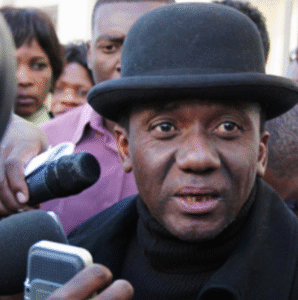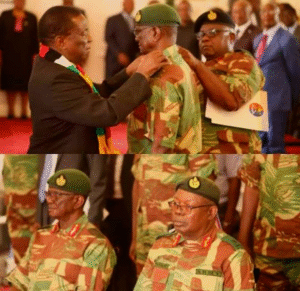ZANU PF’S CONSTITUTIONAL COUP IS A WAR ON DEMOCRACY

What happened in Mutare this past weekend was not just another Zanu PF conference—it was the beginning of a full-blown constitutional coup. At the heart of it all is a desperate push by the ruling party to extend Emmerson Mnangagwa’s presidency beyond his legal second term, which ends in 2028. Zanu PF has now resolved to keep him in power until 2030. This is illegal, dangerous, and deeply unpatriotic. It’s a slap in the face of every Zimbabwean who believed that we had finally moved past the days of one-man rule.
Ziyambi Ziyambi, the party’s legal affairs secretary, shamelessly announced that he has been tasked with initiating the process to amend the constitution within the next year. This is despite the fact that Mnangagwa’s own current term ends in 2028 as dictated by the very constitution he swore to uphold. The hypocrisy is astonishing. Mnangagwa, who once promised to respect the constitution and step down, is now silently complicit in a plan to rip it apart. He hasn’t publicly opposed the decision, because it’s his allies—at his bidding—leading the charge.
Let’s call this what it is: a constitutional coup. And it’s not just a Zimbabwean problem. Across Africa, this trend is spreading like wildfire. From Rwanda to Ivory Coast, from Cameroon to Togo, ruling parties are dismantling democratic systems under the guise of “stability” and “continuity.” In some cases, they’ve abolished elections altogether. In others, they’ve tweaked constitutions to allow their leaders to stay indefinitely. Zimbabwe is now following that shameful path.
Chiwenga’s resistance to Mnangagwa’s power grab has sparked infighting within the ruling elite. But we cannot rely on factional fights to save our democracy. Civil society, opposition parties, and legal experts are rightfully outraged. Some have warned that a change like this requires not one but two referenda. But Zanu PF knows the people won’t support this daylight robbery, so they want to bypass the people entirely and ram it through Parliament. They fear a referendum could become Mnangagwa’s Waterloo—and end Zanu PF’s 45-year grip on power.
And perhaps it should.
Let us not forget that Mnangagwa came to power in 2017 after toppling Mugabe—citing, among other things, Mugabe’s refusal to step down. Now the very man who led that coup is repeating history, refusing to leave, trying to cling to power to protect himself and his allies from accountability. Mnangagwa has been part of government for 45 years. If he stays beyond 2028, it will not be out of necessity—it will be out of greed.
The cost of removing term limits is always paid by the people. It is the people who suffer when leaders stay too long and become untouchable. It is the people who watch institutions rot, corruption deepen, and the economy collapse under the weight of unaccountable power. We’ve seen this movie before. Mugabe ruled for 37 years and left the country in ruins. Mnangagwa is now on the same path, only this time dressed in constitutional language.
Yet, the majority of Africans—according to Afrobarometer—support term limits. Over three-quarters of citizens across 34 countries want change, want accountability, want leaders who don’t die in office. But dictators and their supporters don’t care. They want the cars, the bodyguards, the looted millions, and the power that protects them from facing justice.
This is a battle for the soul of Zimbabwe. If we allow Mnangagwa to bulldoze his way into a third term, we are giving up on democracy. We are handing our future to men who care only about themselves. The time to resist is now. Before 2028 becomes 2030, and 2030 becomes forever.




